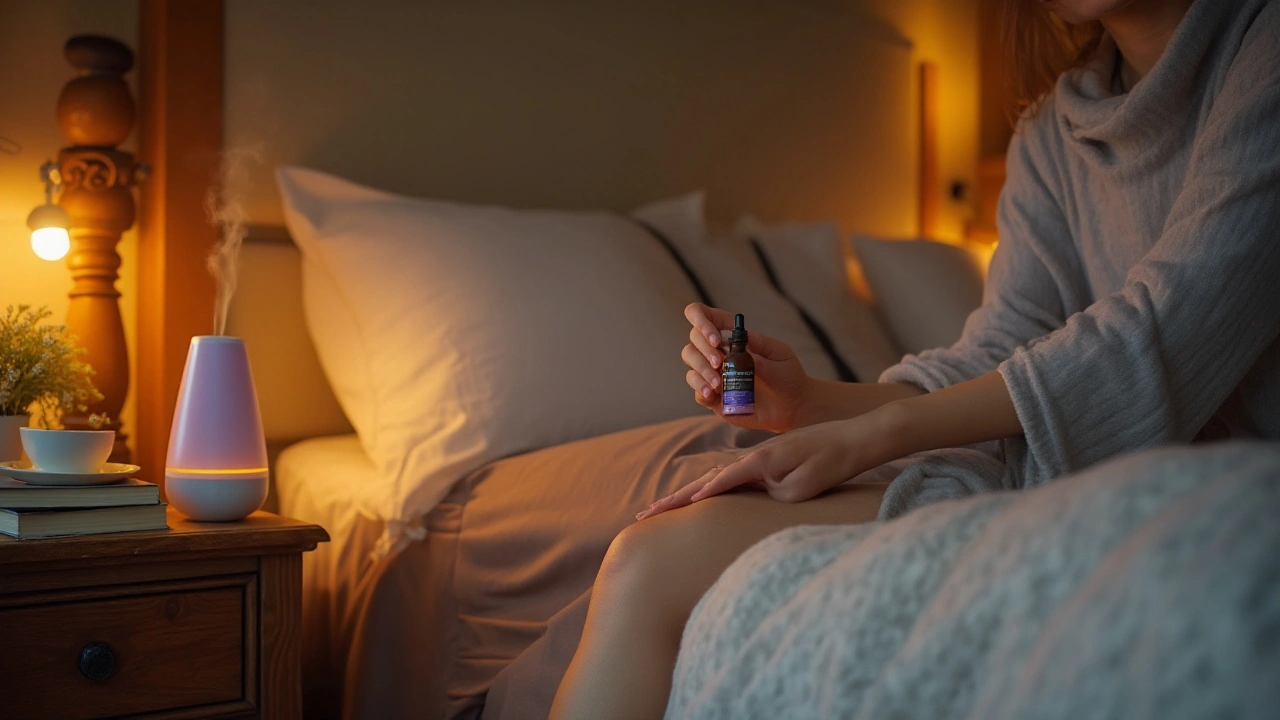Bad sleep wrecks your mood, focus, and health. If you want more energy and less fog, small changes tonight can add up fast. These tips are simple, tested, and written so you can try them right away.
Turn off bright screens one hour before bed. The blue light tricks your brain into staying awake; dim lights and a short, calming activity—reading, stretching, or a warm shower—tell your body it’s time to slow down. Set your bedroom to a cool, quiet, dark space. Even small fixes like blackout shades or a fan for white noise often make a big difference. Skip heavy meals and alcohol close to bedtime; both can break up sleep later in the night.
If you struggle to fall asleep, try a 15-minute wind-down: breathe slowly for five minutes, stretch gently for five, then lie down and focus on a single peaceful image for five. If your mind races, get up and write a quick to-do list on paper; clearing thoughts can stop them from looping when you’re trying to sleep.
Wake up and go to bed at the same time every day, even on weekends. Consistency trains your internal clock so falling asleep becomes easier. Get daylight exposure early—15 to 30 minutes outside in the morning helps set that clock. Move during the day. Moderate exercise improves sleep quality, but try not to do intense workouts within two hours of bedtime.
Limit naps to 20 minutes and before mid-afternoon. Long or late naps reduce sleep drive at night. Watch caffeine: cut it off about six hours before bed. Some people need an earlier cutoff. Track what affects you and adjust.
If pain, breathing issues, or medications keep you awake, talk to your healthcare provider. Many treatments and simple adjustments can help. If you are on TRICARE, check your benefits—your plan may cover sleep-related consultations, therapies, or prescriptions. Your provider can guide safe options and check drug interactions.
Behavioral tools work well. Try a basic stimulus-control rule: use the bed only for sleep and sex. If you can’t sleep after 20 minutes, get up and do something quiet until you feel drowsy. Over time this reconnects your bed with sleep, not with worrying or wakefulness.
Mindfulness and short breathing practices reduce nighttime anxiety. A box-breathing pattern (inhale 4, hold 4, exhale 4, hold 4) calms the nervous system in minutes. Keep a simple routine you enjoy—tea that’s caffeine-free, light reading, or gentle yoga—to signal rest for your brain.
Use a sleep log or simple tracker for two weeks to spot patterns. Note bedtime, wake time, naps, caffeine, and mood. Share these notes and results with your clinician—they help find targeted fixes faster.
Finally, be patient. Changing sleep habits takes a few weeks. Pick one or two changes to try for two weeks and notice how you feel. If sleep still interferes with daily life, seek medical advice—poor sleep is treatable, and help is available.

Learn simple, science-backed relaxation techniques to fall asleep faster and sleep more deeply without pills or gadgets. Try breathing, muscle relaxation, and guided imagery tonight.
Read More
Aromatherapy can significantly improve sleep quality using natural scents and oils. This article explores various techniques, effective essential oils, and tips for incorporating aromatherapy into your bedtime routine. Discover how specific aromas can promote relaxation, reduce stress, and enhance sleep experience.
Read More